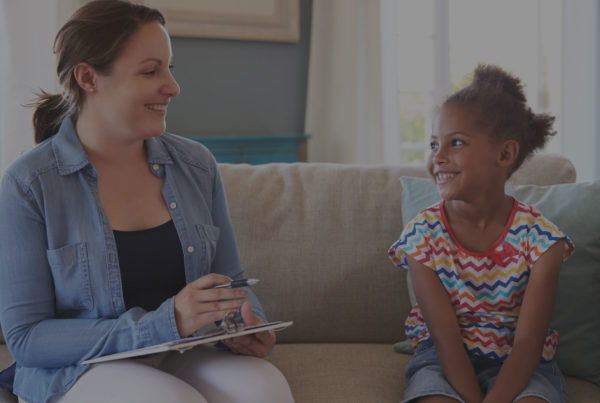Every child admitted to the KidsPeace Residential Program comes with a story, and one of the first goals of the clinical team includes using that story to develop a clinically relevant, individualized course of treatment. At KidsPeace we provide service to children, adolescents, and families using a multidisciplinary treatment team approach; our treatment teams include clinicians, creative therapists, house managers, mental health technicians, psychiatrists, psychologists, nurses, physicians, administrators, and education staff.
The most important members of the treatment team, however, are the kids and their families. Both are actively involved in all aspects of treatment and decision-making every step of the way and it really helps to strengthen the efficacy of services and produce long-standing, meaningful change. Our partnership with TRICARE is instrumental in allowing the KidsPeace clinical team the opportunity to provide our clients with high-quality service more effectively.
Recently we had a TRICARE youth come to us from the inpatient hospital setting, where she was admitted due to suicidal ideation (including an attempt), mood and impulse control issues, and a host of other issues that impaired daily functioning across all settings. At admission, her parents expressed concern and fear for her due to her verbal and physical aggression, social deficits which led to conflictual relationships, and poor insight and judgment regarding appropriate boundaries, behaviors, and relationships. They also expressed their concerns about her returning to their home from KidsPeace.
Using their input, the clinical team developed a multi-faceted treatment plan tailored to address the needs of both the individual and her family. Specific short-term objectives and long-term goals were designed to target specific behaviors of concern, including self-injurious behavior, suicidal ideation, social skills deficits, emotion regulation, boundaries, and strained relationships.
TRICARE standards call for covered youth to receive two individual therapy sessions per week. In session, the young lady was able to address and process issues of concern, especially in the areas of emotion regulation, social skills, and healthy coping skills. Using evidence-based practices, such as Cognitive Behavioral Therapy, along with a trauma-informed approach, her clinician was able to help this young lady make connections between past negative experiences and her current struggles. This allowed her to develop a greater understanding of the root of her distress, along with the functions of some of her behaviors. This resulted in developing strategies to utilize in the present and future to more effectively manage and overcome her distress. She was also offered creative therapies, such as recreation and music, which allowed to her build self-esteem through expression and develop new coping skills. She was able to practice these strategies in real-life situations on the milieu and at school. Her progress became evident as instances of arguing, chaos, and conflict steadily decreased across all settings.
In-person family therapy, facilitated by geographical standards established by TRICARE, was crucial in improving communication and understanding, strengthening relationships, and securing attachment. Using Parent Management Training techniques and the Eco-Systemic Family Therapy model, the clinician was able to help the family to identify core negative interactional patterns, and to develop strategies to break the cycle to decrease conflict and volatility in the home. Additionally, the family worked to build and strengthen relationships and attachment through open dialogue, activities, and a structured schedule of visits.
Throughout the course of treatment, monthly interagency treatment team meetings were held in order to discuss the youth’s treatment progress in all areas, as well as plans for discharge. During these meetings she and her parents were able to fully recognize and acknowledge the progress they had made, which served to motivate them further. As a result, she was able to return to her home with community supports in place.
Treatment at KidsPeace is designed to enhance strengths and target opportunities for growth using a variety of modalities and disciplines. Our partnership with TRICARE allows KidsPeace to achieve those goals, and to honor our mission every day.






